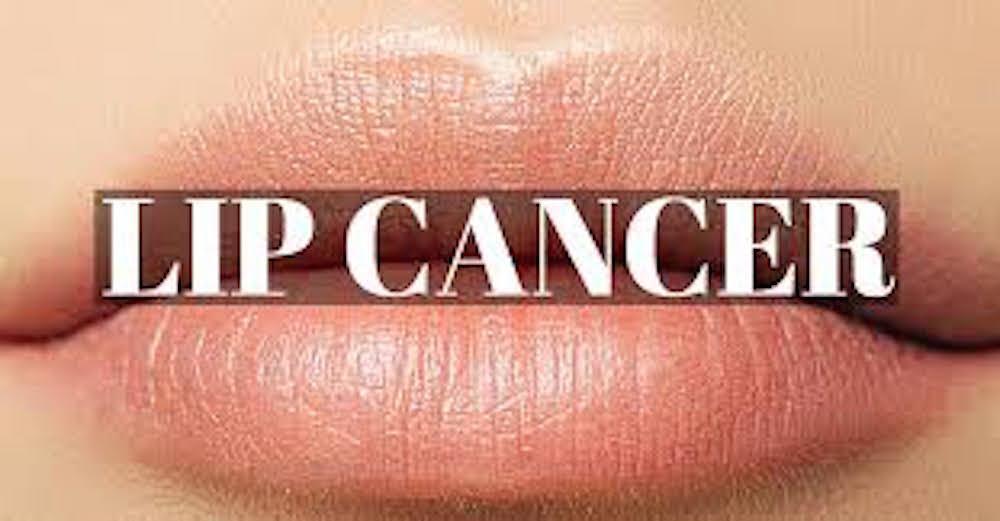
- Details
- By Jessica A. Rickert
UV are Ultraviolet rays come from the sun and from sunlamps and tanning beds. There are two types of UV rays that damage human skin: UVA and UVB.
Lip cancer is oral cancer that is of special concern to dentists. Lip cancer develops from abnormal squamous cells that grow out of control on the lips and on the skin surrounding the lips.
Lip cancer may not have any symptoms. What are signs and symptoms of possible lip cancer, which you should discuss with your dentist or doctor?
- a sore, blister, ulcer, or lump on the mouth that doesn’t go away
- a red or white patch on the lip
- Cracked & bleeding that doesn’t go away
- pain or numbness on the lips
Dentists are often the first to notice lip cancer during a routine dental exam. Lip cancer is highly curable when diagnosed early. Most sores or lumps on the lips are not cancer, though.
How can lip cancer be prevented?
- Minimize exposure to the sun between 10 a.m. and 4 p.m., the hours when UV rays are strongest.
- Apply lip balm with sunscreen 30 SPF before going outside. Re-apply every two hours, even on cloudy days & after swimming or eating. Some cosmetic lipsticks contain sunscreen. Consider using Zinc Oxide, although its opaqueness might be considered unattractive.
- Wear a wide-brimmed hat that provides shade for the entire face, including lips.
- Do not use sunlamps or tanning beds.
- Sand, concrete and water reflect UV rays, so cover up and wear sunscreen while outside. Snow and ice also reflect UV rays.
- Protect children from the sun, because skin damage from UV rays early in life can lead to skin cancer later in life. Keep babies younger than 6 months out of direct sunlight.

Dr. Jessica A. Rickert
What behaviors increase the risk for lip cancer?
- Using tobacco products (cigarettes, cigars, pipes, or chewing tobacco)
- Heavy drinking of alcohol
- Prolonged exposure UV rays (both natural sunlight and artificial)
- Recognize that outdoor activities and outdoor work result in many hours outside
- Having light-colored skin
- Being male
- Having had the human papillomavirus (HPV)
- Being older than 40 years of age
- Living nearer to the equator
How is lip cancer diagnosed? Dentists and doctors perform a physical exam of your lips and other parts of your mouth, head and neck to search for abnormalities. Dentists and doctors will also ask you about your:
- health history
- smoking and alcohol history
- past illnesses
- medical and dental treatments
- family history of disease
- any medications in use
If lip cancer is suspected, a referral to an oral surgeon is in order. A simple biopsy can confirm the diagnosis. During a biopsy, a small sample of the affected area is removed. The sample is then reviewed in a laboratory under a microscope by a pathologist.
If the biopsy results confirm lip cancer, the oral surgeon and dentist and cancer specialist will determine the best course of treatment.Remember, lip cancer is highly curable when diagnosed early. Because many cases of lip cancer are first discovered by dentists, it is important to make and keep regular dental appointments.
Dr. Jessica A. Rickert is a tribal citizen of the Prairie Band Potawatomi Nation. A graduate of the University of Michigan School of Dentistry, in 1975, she became for the first female Native American dentist.
More Stories Like This
This National Cancer Prevention Month, Reduce Your RiskNew Mexico Will Investigate Forced Sterilization of Native American Women
USDA Expands Aid for Lost Farming Revenue Due to 2025 Policies
Two Feathers Native American Family Services Wins 2026 Irvine Leadership Award
Bill Would Give Federal Marshals Authority to Help Tribes Find Missing Children

